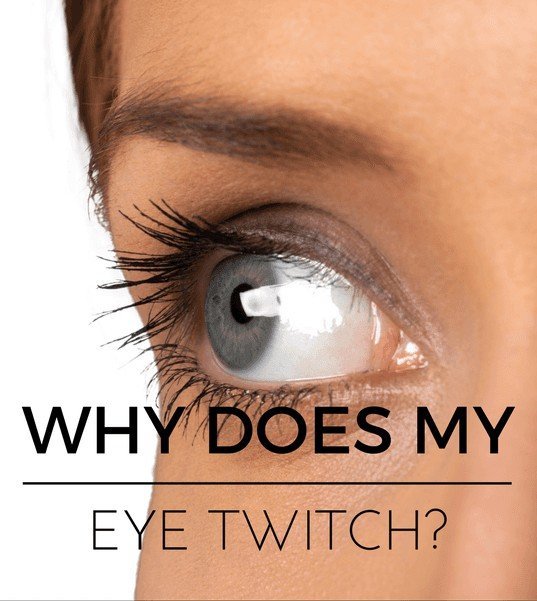Eye twitching — or (more accurately), eyelid twitching — is pretty common. Called “myokymia” in doctor lingo, these annoying twitches usually affect only the lower eyelid of one eye; but the upper eyelid also can twitch.
Most eye twitches come and go, but sometimes a twitching eye can last for weeks or even months.
Triggers of eye twitching can include:
- Stress – Stress is probably the most common cause of eye twitching. Yoga, breathing exercises, spending time with friends or pets and getting more down time into your schedule are ways to reduce stress that may be causing your eyelid twitch.
- Fatigue – Lack of sleep, whether because of stress or some other reason, can trigger a twitching eyelid. Catching up on your sleep and having a consistent sleep schedule can help.
- Eye strain – Eye strain — particularly digital eye strain from overuse of computers, tablets and smartphones also is a common cause of eyelid twitching. Follow the “20-20-20 rule” when using digital devices: Every 20 minutes, look away from your screen and allow your eyes to focus on a distant object (at least 20 feet away) for 20 seconds or longer. This reduces fatigue that may trigger eye twitching. Also, ask your eye doctor about computer eyeglasses to relieve digital eye strain.
- Caffeine – Too much caffeine can trigger eye twitching. Try cutting back on coffee, tea, chocolate and soft drinks (or switch to decaffeinated versions) for a week or two and see if your eye twitching disappears.
- Alcohol – If you experience eye twitching after drinking beer, wine or liquor, try abstaining for a while, since alcohol consumption may cause eyelids to twitch.
- Dry eyes – Many adults experience dry eyes, especially after age 50. Dry eyes also are very common among people who use computers, take certain medications (antihistamines, antidepressants, etc.), wear contact lenses and consume caffeine and/or alcohol. If you have a twitching eyelid and your eyes feel gritty or dry, schedule an appointment for a dry eye evaluation. Restoring moisture to the surface of your eye may stop the twitch and decrease the risk of twitching in the future.
- Nutrition problems – Some reports suggest a lack of certain nutritional substances, such as magnesium, can trigger eyelid spasms. Although these reports are not conclusive, we can’t rule this out as a possible cause of a twitching eye. If you are concerned that your diet may not be supplying all the nutrients you need, we suggest talking this over with your family doctor for expert advice rather than randomly buying over-the-counter nutritional products.
- Allergies – People with eye allergies can have itching, swelling and watery eyes. When eyes are rubbed, this releases histamine into the lid tissues and the tears, which may cause eyelid twitching. To offset this problem, some eye doctors have recommended antihistamine eye drops or tablets to help some eyelid twitches. But remember that antihistamines also can cause dry eyes. It’s best to work with your eye doctor to make sure you’re doing the right thing for your eyes.
Take a close look at this list and note which of these potential triggers might apply to you. Sometimes, just making minor changes to your diet and lifestyle can significantly reduce your risk of eye twitching or help make an eyelid twitch disappear.

